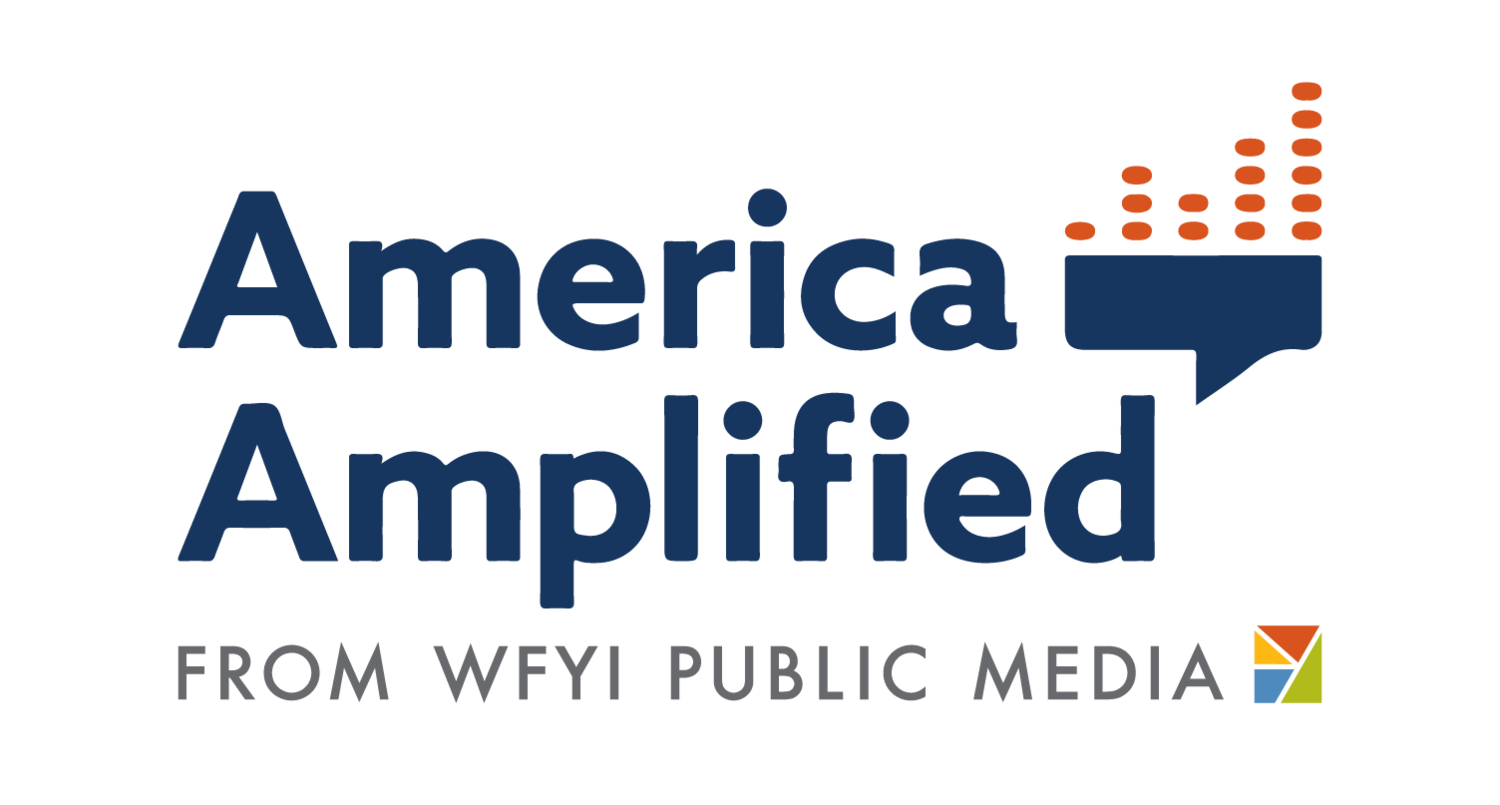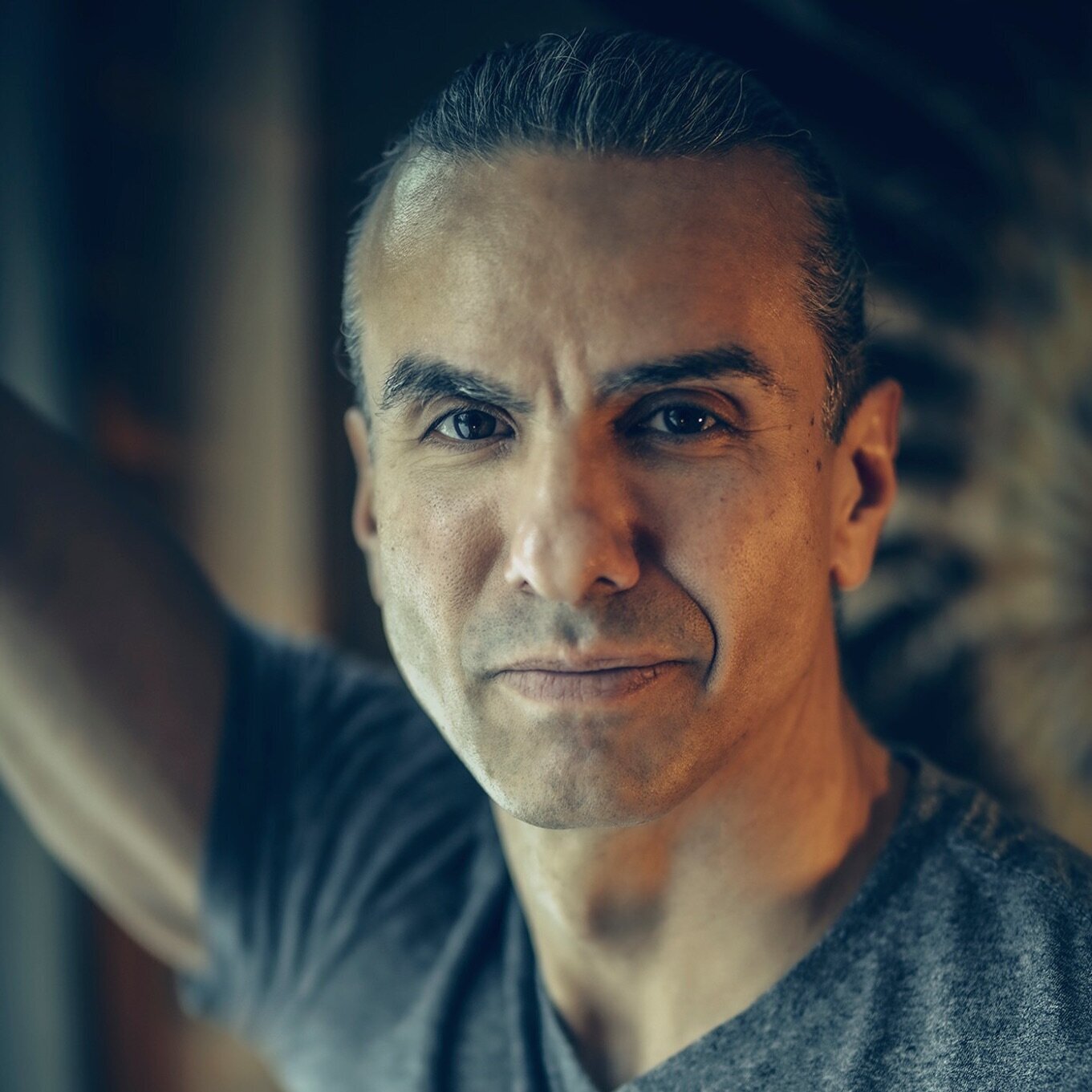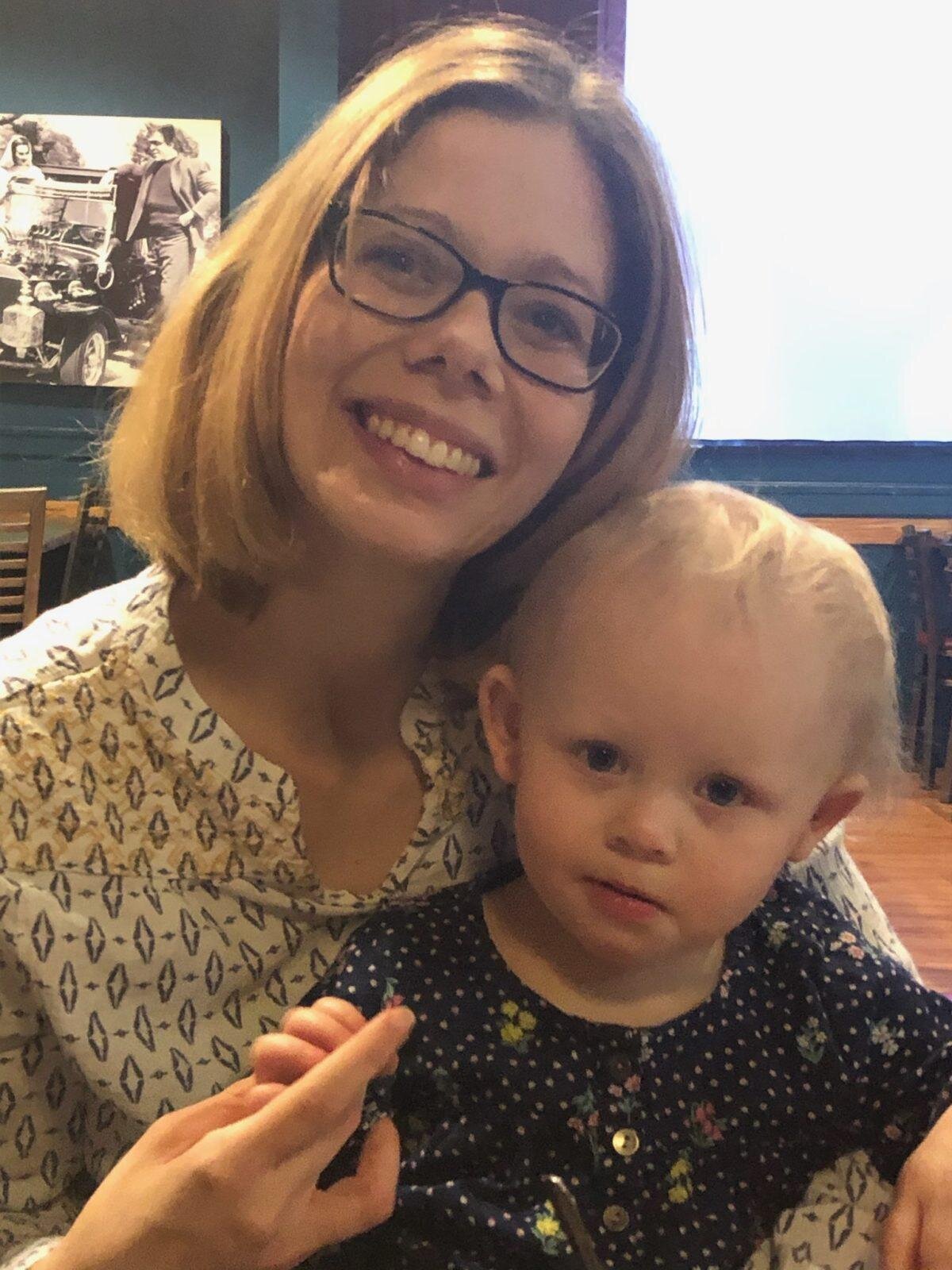Ep. 3: Views from America: What national politics misses and what gives us hope
Though our guests this week live in disparate parts of the country — from Nebraska to Minnesota to Kentucky to New Mexico — they share a lot of similar frustrations when it comes being left out of the national political conversation.
This episode of “America Amplified: Election 2020” opens with reactions from people across the country about what they heard — or, more importantly, did not hear — in the last presidential debate on Oct. 22. Foreign interference in the elections, immigration and the economy were top of mind.
Robert Delfino of Pennsylvania, a Marine Corps veteran, says he wishes there had been more focus on what the candidates would do to pull the country together again. Delfino is one of dozens of listeners who left us a voicemail about the show.
“[President Donald] Trump was completely right … you can’t shut the country down,” Delfino says. “But how do we keep on going forward where you don’t have worry about losing our jobs?”
Our hosts Rose Scott of WABE in Atlanta and Tara Gatewood of Native America Calling in Albuquerque, New Mexico, then lead our guests through a conversation about their communities and hopes for the future.
Anton Treuer, an author, speaker and professor of Ojibwe at Bemidji State University in Bemidji, Minnesota, is the first guest.
Treuer’s work centers around equity, education and bridging gaps between cultures. He’s won numerous fellowships and awards, including from the National Endowment for the Humanities, the Bush Foundation and the John Simon Guggenheim Foundation. We learned about his work and scholarship in an America Amplified National Listening Session.
Treuer talks about the “marginalization and invisibility” of indigenous people and how his culture’s tradition of sharing with others — like how a successful hunter gives away the entire kill for a first kill feast — is missing in broader American culture.
“In our politics, especially, we ‘other’ one another. We take an adversarial position with one another,” Treuer says. “I’ve heard some White folk who are really worried about the loss of cultural, political and economic power. That we’re going to flip roles between who is the oppressor and who is the oppressed. So they’re fighting with one another instead of working together to fight oppression.”
Talk show listening sessions
As part of our talk show run, we will be holding two listening sessions: on October 27, the Tuesday before election day, and November 10, the Tuesday after.
Each 90-minute session starts at 7 p.m. ET/6 p.m. CT/4 p.m. PT.
Space is limited. Register today!
Communities coming together
Then our show invites Tiffany Wilburn-Meek of Greenup County, Kentucky; Doug Friedli of Nebraska City, Nebraska; and Mitchelene BigMan of Florida to share what’s happening in their communities.
Greenup County in eastern Kentucky has a population of about 35,000. In May, the county’s only hospital closed. Wilburn-Meek was featured in a story by our partner network Ohio Valley ReSource about the closure and its impact on the community.
“It was devastating for the area when it closed,” Wilburn-Meek says.
It meant that people who live in more rural areas have longer ambulance rides to the next nearest hospital.
“Economically, it’s had a huge effect. So many people lost their jobs, considering having to move ... the ripple effect has been huge.”
The hospital employed 1,000 people and she says local charities have seen donations drop.
As for national attention to rural America, Wilburn-Meek says Kentucky’s reputation for being a historically Republican state has an impact.
“I don’t think there’s a big push to talk about states like Kentucky on a federal level because it’s already been decided,” she says.
In much smaller Nebraska City (pop. 7,200), Friedli says he’s looking for leadership. His community is dealing with businesses hurt by the pandemic and federal promises not being fulfilled.
“I see Covid has created fear in lots of people’s minds,” Friedli says. “It’s going to be a long time until some folks feel safe going out and resuming their health regimens … normal shopping patterns, let alone going to a public event, even churches.”
Before the pandemic, the community was working on reducing poverty levels, increasing affordable housing and recovering from an epic flood in 2019 that caused $4.4 million in damage to roads and bridges in one Nebraska county alone.
Fortunately, Friedli says his local government and organizations have been responsive.
“We’ve got a great city council and mayor, very engaged,” says Friedli, the executive director of Missouri River Basin Lewis & Clark Center.
It’s been a different experience with federal agencies such as FEMA (Federal Emergency Management Agency), which had promised payouts to families who lost homes in the flood.
“Those promises have not come to fruition,” Friedli says. “It’s been 19 months and we still have not seen any of those dollars. People can’t go on forever living on promises.”
According to a September 2019 report from the Natural Resources Defense Council, it can take about 5 years for a FEMA buyout to be complete.
Locally, though, Friedli says he has seen good work from his city council and community members, with some even donating their $1,200 CARES Act stimulus check to help others.
Mitchelene BigMan, the President and Founder of Native American Women Warriors Organization, is an Army veteran. She advocates for more assistance for veterans that recognizes the traditions in Native American culture.
For instance, more focus on alternative medicines instead of pharmaceuticals; more counseling on reservations and more emphasis on spiritual healing. This is especially important because according to www.veteranaid.org, a higher percentage of Native Americans — almost 19% — served in the Armed Forces after the 9/11 terrorist attacks, more than any other ethnicity.
After listening to an audio clip from Garrett Haskins, a farmer in Oklahoma who talks about how the pandemic has posed a universal challenge, all three guests — Wilburn-Meek, Friedli and BigMan — say they’ve seen how the pandemic has brought out the support and care in their communities.
“Covid has managed to hit America in so many negatives, but what I’ve seen is how Americans come together to help each other out,” BigMan says. “That’s one thing that’ll never be taken away from us. If our government isn’t going to help us, we’ve got each other’s back. That makes me proud to be an American.”
Why a revolution is coming
When it comes to the future, our guests Mattee Jim of Albuquerque, and Mikis Mays, a student at Savannah State University in Georgia, are focusing on education, LGBTQ rights and the environment.
Jim is a Native transgender woman and says the trans community is left out of a lot of issues on tribal, state and national levels. She advocates for more equality around housing and health care. She’d also like to see more ideas on improving education in tribal communities, which are often left to take care of their own.
Transportation, for instance, can be an issue in Native American country because of the long distances between homes. And internet access is spotty.
“I was on a reservation nearby and this is where families gather because this is where the internet is stronger and people have to go there to do homework,” Jim says.
She adds that she is pleased with how state officials have recognized and addressed Native and trans issues. New Mexico has more than 20 tribal communities.
As a senior at college, Mays says he tried to address his concerns about voter suppression by applying to open a polling location on campus … to no avail.
“The Board of Election here in Chatham County had me jump through various hoops and I jumped through all of them,” Mays says.
After he graduates, he plans to pursue a doctorate in material science so he can work on climate friendly technology, like creating more efficient solar panels.
“We have to ensure that our children, my children, will be able to breathe clean air and eat non-contaminated foods,” Mays says.
Anton Treuer says he sees this same spirit and passion in his children and the students he teaches. They want to push for a world that feels safer than the one they live in now.
“Every culture always has a tension about cultural continuity and cultural change. We need both,” Treuer says.
“I’m a fuddy duddy professor, I’ve been pulled over by the cops 40 times. And all my teenage drivers have been pulled over, and it’s not because we’re breaking the law,” Treuer shares. “Are we going to develop really meaningful reforms in this country?”
He believes that if the change doesn’t happen through our political arena, then we’re risking a revolution.
“We have to find a way to create greater access to opportunity for all of our people and greater safety, or the change is going to come in a very uncomfortable way.”
He also believes that this coming movement will be transformative and mark another positive growth line for democracy.
“As Native people, it’s important that non-Native people know that we are more than the sum of our tragedies,” Treuer says. “For most of human history, all humans of all groups have been indigenous, Earth-based, communal. The real test of our democracy will not be who wins the culture war and obliterates all the other cultures, but who figures out how to transform us into a society where we will be measured by our ability not just to tolerate but to support all kinds of linguistic and cultural diversity so we can truly learn from and appreciate one another.”
Audio postcard from Pound, Virginia
Sydney Boles, a reporter for our partner network Ohio Valley ReSource, shares this story out of the small town of Pound, Virginia, home of the Red Fox Storytelling Festival. The event celebrates an Appalachian tradition and was livestreamed this year from October 23-24..
“The virus has been really tough on our community and it’s been hard to keep your head up and keep going without those normal ways of being in community together,” says Marley Green, a festival organizer. “Part of what storytelling has meant for people here is a way of telling history that also teaches lessons about today and about how we got to where we are and how our history can inform our future.”
Show credits
Executive directors: Donna Vestal and Alisa Barba
Senior producer and director: Andrea Tudhope
Operations manager: Jennifer Tufts
Assistant producers: Mayowa Aina, Alaska Public Media; Grace Walker of WABE; Monica Braine of Native America Calling
Community engagement directors: Ann Alquist and Matthew Long-Middleton
Digital and social media editor: Kathy Lu
Advisory committee: Ron Jones, program director, KCUR; Abby Goldstein, PRPD president; Rick Holter, VP of news, KERA; Stephen Becker, senior producer, KERA; Art Hughes, executive producer, Koahnic Broadcast Corp.; Monica Braine, senior producer, Native America Calling; Ernesto Aguilar, program director, National Federation of Community Broadcasters; John Haas, director of radio and television at Public Broadcasting Atlanta (WABE); Breeze Richardson, formerly WBEZ-Chicago, now communication director at Kemper Museum of Contemporary Art; Brian Bull, reporter, KLCC
Technical support: Chris Prewitt of KCUR in Kansas City
Distribution support: Native Voice One
Music: Rattle Dance by Asani









